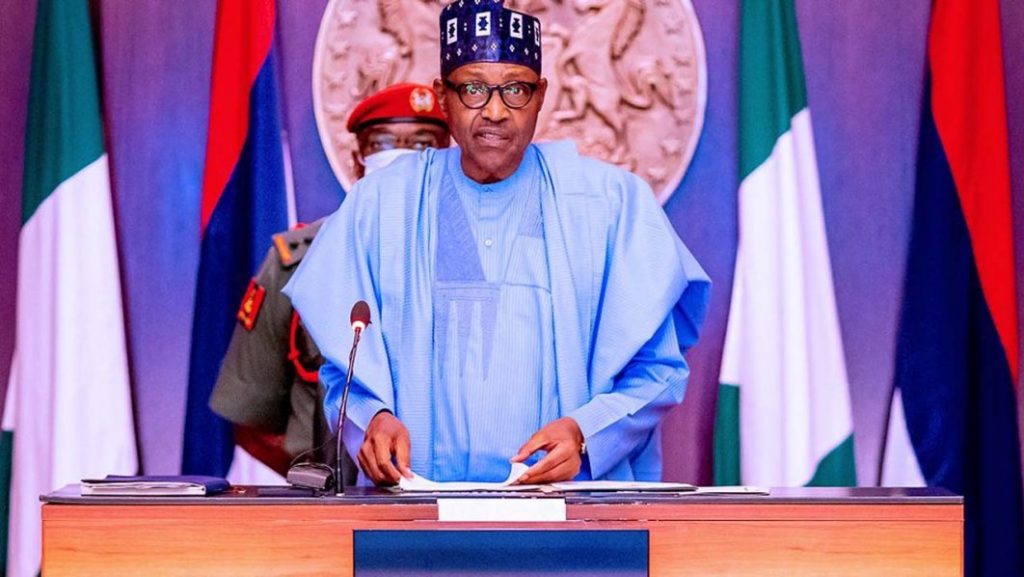In what has become a norm for President Muhammadu Buhari to address the nation on the occasion of Democracy Day every June 12, this year’s celebration was no different. The president in the early hours of Sunday addressed Nigerians on the trajectory of the country since independence, its ups and downs and how its democracy has fared, IgbereTV reports

As everyone would expect, the president touched on issues bordering on the existential threat of insecurity manifest in banditry, kidnapping and other forms of violence. He also paid touched on the forthcoming elections of 2023, focusing on the significant electoral reforms made by his administration.
Given the state of the country at the moment however, the big issue is whether the claims advanced by the president in the speech tally with what obtains as the reality in the country. Has Nigeria’s democracy progressed, despite its litany of crises, as stated by the president? Here are some points to unpack.
No doubt June 12 is a historic date to celebrate freedom of Nigeria after seismic decades of military juntas. The country, as claimed by the president, must devote a day in honour of a passage through which it became free from coups and counter coups. It is distressing, though, that the country has achieved less in terms of its agenda to entrench unity among its people, as Nigerians still carry such needless ethnic orientation which impinges on the unity of the country.
The president also hinted at the need to honour the sacrifices of the heroes of Nigeria’s Democracy during 1993 especially as the basis for the actions of those in leadership positions . It is evident that Nigeria’s current set of leaders have learnt nothing from that historic turning point and Nigerians have not done much, either, in terms of holding leaders accountable. This explains the wide gap existing between the duo and affects the quality of governance available in the country.
Another area of argument in the speech is the president’s position on the just-concluded primaries conducted by political parties across the country. He said the conduct was orderly and peaceful and that most candidates ran issue-based campaigns.
In terms of peaceful conduct, the president might be right. But this does not erase the in-your-face instances of manipulations especially in the presidential, House of Representatives, and Senatorial primaries conducted in most parts of the country. Glaring cases tilting towards heavy monetization of the process abound. In the opposition Peoples Democratic Party for instance, presidential aspirants such as Peter Obi, Muhammed Hayatu-Deen, and a few others complained about the complete jettisoning of due process as only the highest bidders had their way. This is in addition to the disgusting culture of ‘delegates purchase’ around which the entire process revolved.
For instance, while stating reasons for his withdrawal from the presidential race in a letter addressed to the PDP Chairman, Iyorchia Ayu, Hayatu-Deen said: “It is therefore based on personal principles and with great humility that I have decided after wide consultations to withdraw from this contest which has been obscenely monetized.”
Even in the ruling All Progressives Congress (APC) there were allegations that delegates to the party’s primaries were ‘settled’ financially to determine their votes. The Ebonyi State Governor, David Umahi, who was a presidential aspirant of the party accused the South- East delegates to the APC presidential primary of trading their votes, saying that they would soon realise that money was not everything.
In the aftermath of the same exercise, the Kogi State Governor, Yahaya Bello, ripped into the process by tagging it “the government of the oppressors by the oppressors and for the oppressors”.
Bello further revealed a gang-up against him by Northern Governors while picketing delegates “who have largely been pocketed by their paymasters and who defer to the highest bidder are made to choose flagbearers of a political party is as warped as the process itself”.
He claimed that opponents “went beyond speaking with delegates and oiling their palms”.
The above sharply contrasts with the claim made by the president in the speech. It also indicates that the primary elections cannot be leveraged as the bases for the forthcoming general elections, if the country is sincerely ready for genuine democratic development.
Finally, the president said “he is living with the grief and worry for all those victims and prisoners of terrorism and kidnapping.” How true? Many Nigerians will doubt the president’s claim in this regard, as the general belief stemming from the president’s body language has been that of insensitivity to the plight of Nigerians and victims of terrorism, banditry and kidnappings. Many Nigerians have continued to wonder how these criminals continue to roam free perpetuating various atrocities against citizens, despite claims and funds that are claimed to have been expended in prosecuting the war against insecurity in the country.
One immediate example is the recent massacre of countless worshippers at St Francis Catholic Church in Owo, Ondo State, on Sunday 5th June, 2022. In the evening of the same day, the president convened a meeting of the National Advisory Council of the ruling APC in an atmosphere that showed no concern for the incident that should be taken as a national tragedy. Neither did he deem it fit to visit the place but had the time to spend hours at the national convention of his party.
Under the President, the insecurity, which he claimed is under control, has festered. Despite acclaimed investments in the area, Nigeria is still in the grip of the menace






